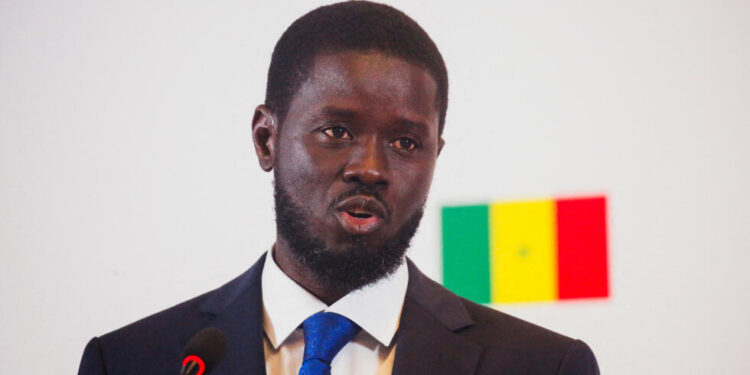Junta-ruled Mali, Niger and Burkina Faso “irrevocably” turned their backs on the Economic Community of West African States at a summit of the Alliance of Sahel States at Niamey, Niger, on 6 July 2024, citing a raft of reasons. As reported by the BBC, Nigerien leader, Gen Abdourahmane Tchiani, said at the summit that together with his compatriots (Burkina Faso’s Capt Ibrahim Traoré and Mali’s Col Assimi Goïta), the triad aims to build a community of sovereign peoples “far from the control of foreign powers. A community of peace, solidarity, prosperity based on our African values.” Capt Traoré told the audience at the summit that “this continent has suffered and continues to suffer from the fire of the imperialists. These imperialists have only one cliché in mind: ‘Africa is the empire of slaves’.” Apart from its quest to form a confederacy, the Alliance also intends to have a common currency and completely sever ties with the France-backed CFA franc. They have also expelled French soldiers on anti-jihadist missions in their respective countries and gravitated toward Russia for military assistance. The three countries just do not want anything more to do with France and the United States. They see ECOWAS as a stooge of these superpowers.
Following the announcement of their breakaway, ECOWAS, at its own summit in Abuja, Nigeria, a day after, appointed Africa’s youngest president, Basirou Diomaye Faye of Senegal, as a peace envoy supported by Togolese President Faure Essozimna Gnassingbe, to try and talk the triad out of their adventure.
ECOWAS’ choice of Faye is quite obvious. He falls within the age bracket of two of the three military leaders. Mali’s Assimi Goïta is 41 years old. He led the 2020 coup and has been the transitional president since 2021. Burkina Faso’s Ibrahim Traoré is 36. He led the 2022 Burkinabé coup and has been the transitional president since 2022. Niger’s General Tchiani, however, is 63 years old. The former UN peacekeeper was the commander of Niger’s presidential guard until he betrayed the very person he had been tasked to protect, his boss, President Mohamed Bazoum, by overthrowing him. Gen Tchiani then declared himself the head of the National Council for the Safeguard of the Homeland, the military junta set up after he seized power on 26 July 2023.
Faye’s age can help him relate more to the junta leaders, especially Goïta and Traoré. For a triad like the AES, getting through two of them is as good as getting to all three. Even if he cannot relate directly to General Tchiani due to the generational gap, his peers – Goïta and Traoré – could be an easy conduit. Secondly, he is innocent of ECOWAS’s crimes against the triad since he had not been elected as of the time the threats of sanctions and possible military invasion were made against the three countries. Thirdly, Faye himself has been a victim of injustice under former Senegal president Macky Sall. He was imprisoned and released just days ahead of his country’s elections. So, he can empathise with the grievances of the triad who see ECOWAS as a tool of imperialist France and the West. Additionally, Senegal still has good relations with the West so Faye could also be a liaison between the West and the triad. He could be the mediator who brings those two sides together or at least presents either side’s perspective to the other for an effective dialogue. Faye can leverage his youthfulness and reformist credentials to build trust with the military leaders, who are seeking a departure from traditional Western alliances (Africanews) (The Point).
Also, with the security landscape in the Sahel being a critical factor in the disagreement between the triad and ECOWAS, Faye could emphasise the benefits of collective security within ECOWAS, potentially offering reforms or new strategies that resonate with the priorities of Mali, Niger, and Burkina Faso. These could include reducing dependency on external forces like France and fostering greater regional autonomy (Arab News).
To lure the three nations back, Faye might also need to propose economic incentives or reforms within ECOWAS that align with their desire for greater sovereignty. This could involve renegotiating economic agreements or offering development aid that supports their national interests while demonstrating the tangible benefits of regional cooperation (Africanews) (The Point).
Additionally, Senegal has given the strongest assurance to the triad that it would not serve as a conduit for an attack on any of them. While visiting Bamako on 12 August 2024, Senegal’s Prime Minister, Ousmane Sonko, another young politician, made it clear after meeting with Goïta that: “No one will pass through Senegal to destabilise Mali.” As reported by the Africa Report, he also criticised the decisions taken by ECOWAS about the junta, but called for “salvaging what can be salvaged”. In an interaction with his Malian counterpart, Choguel Kokalla Maïga, Sonko welcomed Mali’s “fight for sovereignty”, adding: “If the AES countries decide to leave ECOWAS, they have the right to do so, they are sovereign. ECOWAS agreements are not inalienably binding,” and called for “patriotism, which must necessarily be African”. In his view, however, “We have to save what can be saved. We must do everything we can to preserve the bloc and, if possible, expand it despite the problems. I don’t want the family to fall apart.” Sonko, essentially, was echoing the reconciliation tone of his president, when Faye met Mali’s Goïta and Burkina Faso’s Ibrahim Traoré in May on the same issue.
Even though not much has been achieved so far through Senegal’s mediation process, the fact that the junta leaders openly dialogue with President Faye and Prime Minister Sonko alone is a lot of progress.






























